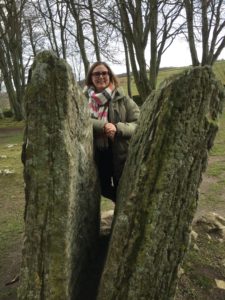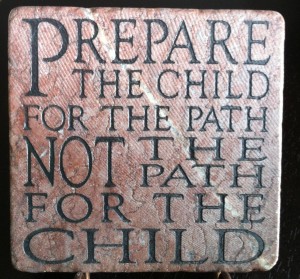Time travel has become an eye-rolling matter in our household. Since I first made the observation several years back that humans as a whole seem to be obsessed with time travel, it seems that at every turn there is yet another book or movie based on this concept. It’s almost like that is only trick in the storyteller’s toolbox these days. The first modern movie I personally remember that capitalized on this theme was the Back to the Future movie in 1985 that then spawned two sequels.
A quick web search of time travel books and movies reveals a huge and growing list. Do creatives just have to try their hand at some new twist on the time travel genre? I mean, I do get the fascination. How amazing would it be if there were some machine or natural device by which we could travel in time either back into the past or forward into the future? With all of the drama and intrigue of history, recent and ancient, it is tantalizing to think of dialing up a past date and location and wandering around asking modern questions and resolving mysteries. Then maybe, oh maybe, you could say or do something that might alter the course of history for the better.

How much money has Diana Gabaldon made with her Outlander books and TV series that are based not on time travel in a human machine but rather via mystical magical stones in Scotland? People love this stuff. I am convinced that part of the fascination is imagining how much we could accomplish in a previous era knowing what we know now. It is basically cheating. If I can know all of the questions and answers on the final exam before I take it, imagine how well I would do. Imagine how smart and powerful you would think I am. Except I’m not. I just cheated.
Even I with my time travel skepticism cannot avoid getting drawn in to the storyteller’s art as I try to make some change in the past that will improve the outcome of the future. Suspension of disbelief, indeed!
Of course, if you can time travel into the past, there is no reason that the same machine or magic should not be able to catapult you into the future. And so we spend some time there. We dial up a distant date and location and travel ahead to strange and wonderful goings-on. What is transportation like in 500 years? What about the food? Do we still have nation-states or are we one global people? For that matter, are we one Universal Empire? Oh, the possibilities!
It does strike me that one of the necessary features to all such time traveling is that we be able to return to the present. We want to tinker with the past in order to fix things so that we can get back here and finally live in a world and a life worth living. We want to visit the future but return to the present because we can’t bear to leave behind the people we care about and the culture we inhabit, regardless of how flawed it might be. We also want to bring back the technology of the future and make the world a better place. At least that is the more noble spin we would put on cheating.
If such a time machine or magical stones really existed, would you sign up to take the ride if you knew you could never return to right now? If it really were a one-way trip, would you do it? Most of us would never sign up for that. Why not?
That makes me wonder if right now is really so bad? Do we have some innate sense that we are supposed to be here now? We do travel to our pasts in memory. We even travel to far distant pasts via books and our imagination. We also travel to the future in our thoughts and via art. But we live here. Now.
Do you know how much money I could make if I knew the future? Even if I could only know one day in advance I would devise a strategy to capitalize on it. So would you. But we cannot. Despite the claims of diviners and charlatans, humans can only guess at the future based on past experience and assumptions. Sometimes those guesses come true and create the illusion of prescience. But alas, even the most skillful guesser is exposed at some point.
Is there any point to all of this? Right now we are in the midst of a frightening present. We are dealing with what future historians will likely call a plague. By every definition I have come across, COVID-19, the current Coronavirus, is a plague. We do not know how this is going to turn out. We can use modern epidemiological models to try to predict how many people will contract it and how many people will die because of it. We can try to predict how long it will take to “run its course” or how long until someone develops a vaccine. We can look to the past and make predictions based on how the Spanish Flu impacted the world, but in the end we are making predictions. This fills us with concern, uncertainty, and even fear. Our public officials, and every one of us world-wide, are being forced to make decisions without being able to see the future.
This is the way life always is. We all have a past we can draw on and learn from. We all have a future that is unknowable. But we live in the present. My resolve in this moment is to refrain from predicting the future while valuing the people in my life that matter most. I am reading and dreaming and reflecting like always. My spiritual understanding informs my ultimate cosmic hope and comfort, but this moment in time is a reminder that life is a gift best lived in the present.

